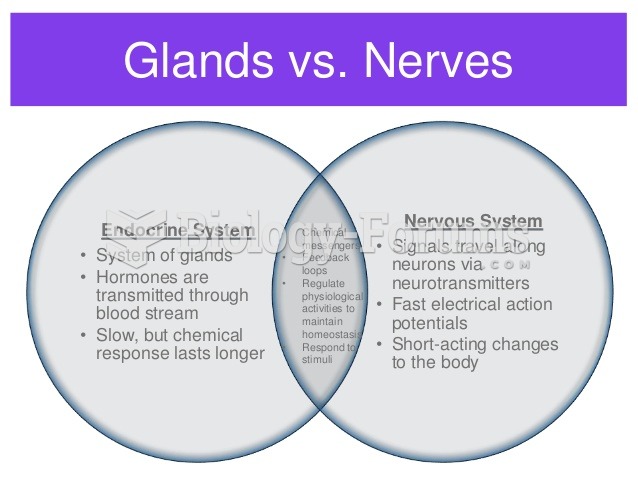|
|
|
About 100 new prescription or over-the-counter drugs come into the U.S. market every year.
Disorders that may affect pharmacodynamics include genetic mutations, malnutrition, thyrotoxicosis, myasthenia gravis, Parkinson's disease, and certain forms of insulin-resistant diabetes mellitus.
Your heart beats over 36 million times a year.
More than 30% of American adults, and about 12% of children utilize health care approaches that were developed outside of conventional medicine.
People with alcoholism are at a much greater risk of malnutrition than are other people and usually exhibit low levels of most vitamins (especially folic acid). This is because alcohol often takes the place of 50% of their daily intake of calories, with little nutritional value contained in it.







